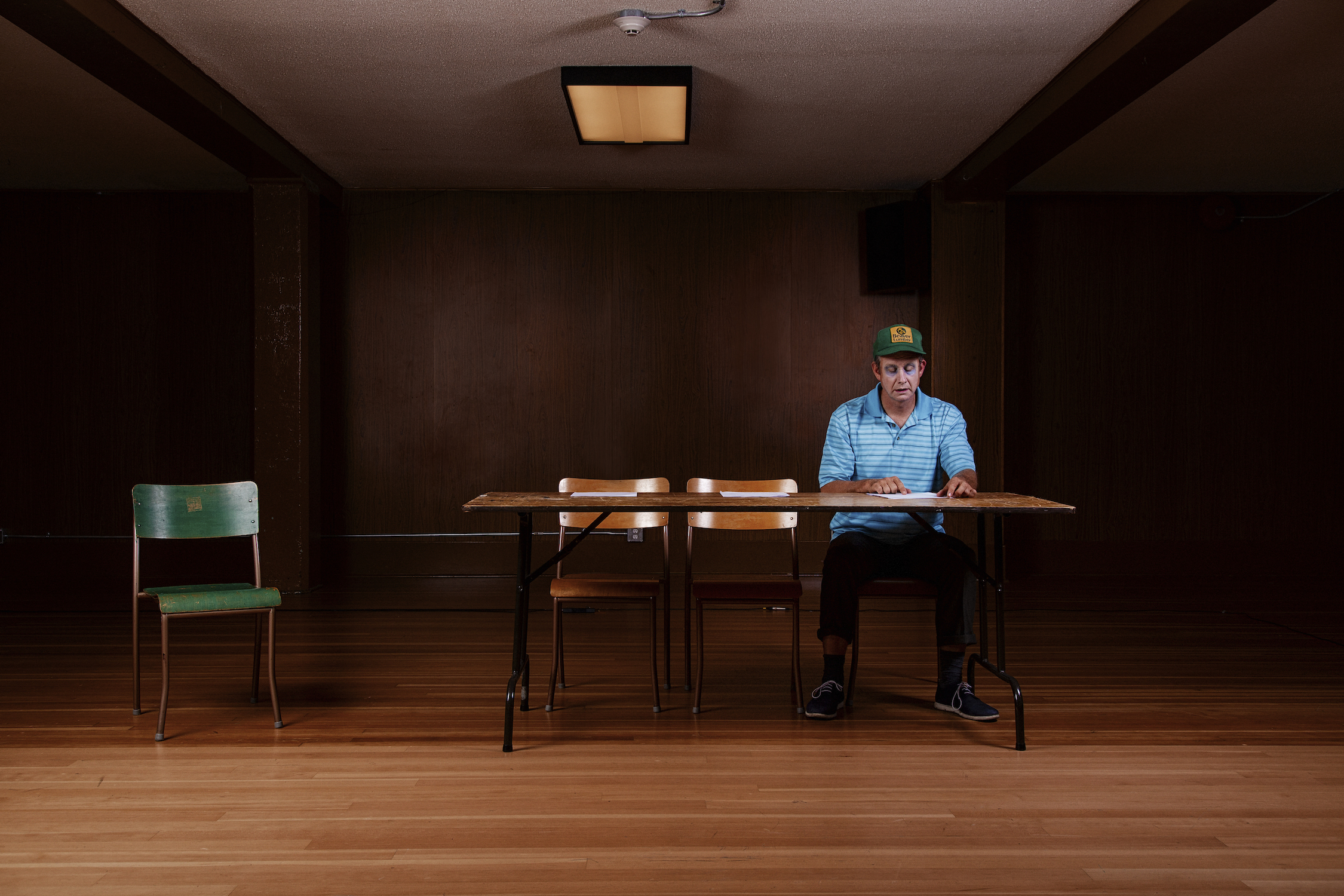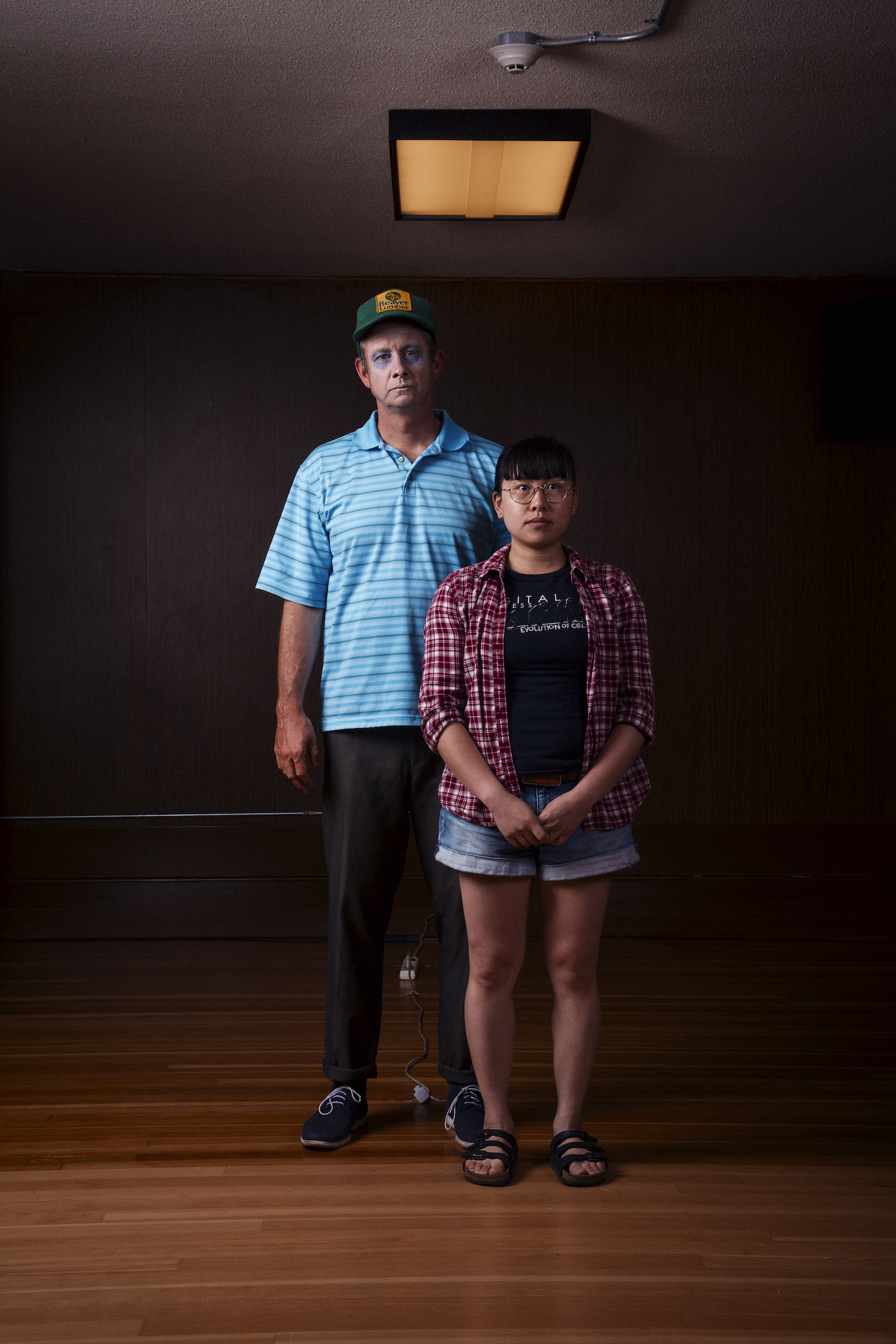
“Footnote Number 12” is a contemporary theatre experience made by and for word-nerds. It’s a composition of speech. It questions the politics of language by deconstructing words, sentences, and writing styles. It explores the voice as an instrument, using various tones, pitches, and volumes.
The monologues are witty, quick and complex. I listened intently, but each time I tried to write down a quote from Footnote I missed either too much of what was being said on stage, or managed to listen but forgot the original quote before getting it down on paper. Is it ironic if a review of a literary performance gets every quote wrong? I apologize to the scriptwriters in advance.
Audience members can’t expect to be passive voyeurs—this show is interactive! The thought of audience participation terrified my partner, but I went in ready for anything. We entered the Performance Works black box theatre to find a book on every second seat. It’s “Both Flesh and Not”, fifteen essays by David Foster Wallace, whose most interesting points often appear in “the footnoting of his footnotes.”
As the risers fill in, some people pick up the book and start reading, others choose a chair without a book because they think book-havers will be called on to participate. Still, others take the seat they want, then toss the book aside. Over the course of the next hour, we heard excerpts from this text. We also read them silently, read them aloud, and sang them in a call and response style. The speaker seemed impressed that we had actually sung when told. The house lights stayed on the whole time, with the audience on full display.
The speaker (James Long) wore a red, blue and green outfit that matches the red, blue and green spotlights scattered across the stage. He spoke in a soft, light voice, explaining “what we’re gonna do” but struggled to find the words. “It’s wordy, but not wordy in a bad way, more of a good way. It’s wordy in a good way.” In his deadpan style, he instructed the audience “Don’t laugh. Don’t be childish.” Everyone burst out laughing.
There was a table with sound equipment set up in the front row of the audience, right in the middle. The sound designer (Nancy Tam) manipulated the speaker’s voice from there, occasionally entering the stage area for a few moments at a time.

When Long sat in a certain spot and critiqued an article by David Foster Wallace his voice was artificially high, like he’d inhaled helium. He described one particular sentence, saying something like this “11 words, comma, 7 words, comma, 10 words comma, 7 words, comma…” while his voice bounced between speakers around the room. We never found out what those words were, only that that one sentence had 22 commas and no semicolons.
When in the chair beside that, reading sections of text aloud, his voice was impossibly deep. Here he instructed the audience to “Please pull out your books. Just share amongst yourselves. Turn to page 8. 8.” There was an echo while he read aloud, and I thought at first that someone in the crowd was whispering along with him, like we were in church.
There was a third chair on the far side of the stage that served as his spot for analyzing and deconstructing particular words that Wallace used, like “spouse”. Is it sexist and antiquated? Or is it equitable, just old?
And what about accountability? Should we hold a person’s feet to the fire when we disagree with their use of “a lot” in an otherwise lofty essay? Or their comparison of sports to war? How do we know what an author meant when there is so much room for ambiguity in the English language? The meaning of a sentence can be completely changed by adding a comma, or removing a capital letter. The speaker’s voice became warped, the sound zipped around the room, frantic. Then a sudden silent stillness—I didn’t want to shift in my chair.
The speaker brings a chair to centre stage, sits, and opens, for the first time, the copy of “Both Flesh and Not” that has been on stage since before the audience arrived. Also for the first time, we seem to be hearing his natural voice, as he finally reads the infamous “footnote number 12” from Wallace’s book aloud.
The footnote is marked with a bracket and two question marks—it’s ambiguous. What does it mean? Is it necessary? Is it a joke? Will changing the words change the meaning?

Footnote Number 12 gave everyone in the audience something to think about, without providing any answers, without pushing any philosophy onto us. It was, and I quote, “Progressive, but not in a liberal way… Reactionary, but not in a conservative way. More in a mystical way.”
Footnote Number 12 is playing with the PuSh festival until February 8, 2020. Get tickets here: https://pushfestival.ca/shows/footnote-number-12/
– Kristen Lawson
